Search Results

Christen
Originally from northern New York, Christen moved to Denver, Colorado, in 2015 after completing her Bachelor of Science of Nursing at Le Moyne College to pursue a career in cancer care. Through a close relationship with her grandparents, she saw how her grandma, a retired registered nurse, graciously cared for her grandpa while he lived with esophageal cancer for close to a decade. The unwavering love, dedication, and courage they shared inspired Christen to seek out a specialty that allowed her to provide compassionate, holistic care to those in need.

Christina
As a Greek Latina indie author, I found it empowering to share my fight with lymphoma through social media and with my current writing. Many have told me that it’s inspiring, and I hope that leads to more attention and support for those fighting blood cancers like lymphoma.
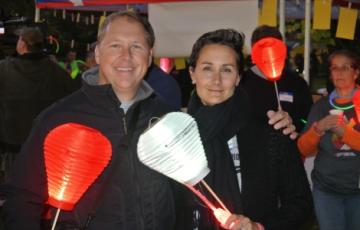
Deanna
Within 24 hours of going to the local emergency room in New York, I found myself being admitted to the Dana Farber/Brigham Women's Cancer Center in Boston. It was August of 2013 and I was exhausted beyond anything my four kids could inflict upon me and shocked to find out it wasn't anemia, I had acute lymphoblastic leukemia (ALL).

Rachel
My name is Rachel Iruegas, and on June 4, 2019, I heard the dreaded words that no one ever wants to hear: “you have cancer.” I was diagnosed with stage 2B Hodgkin lymphoma (HL). In that moment, my mind went blank and my body numb. I honestly do not remember much of what my oncologist said after that. I knew I was in the room with her, surrounded by my family, but my body wanted to be somewhere else – anywhere else but there. I knew in that moment that my life was going to completely change, and I had no way of stopping that.

Allyson
In November 2016 I was tired. TIRED. I had a 20-month-old and a 4-year-old, had just come off the busiest month of the year for work, and I figured I was tired for no other reason. But then tired became not having the energy to take care of my 20-month-old. Tired became going to be my best friend's wedding and needing to lay down in between steps. Shower, lay down. Makeup, lay down. Hair, lay down. Get dressed, sit for a minute. Walking a long hallway seemed daunting. And then carrying my son from my car at a gas station to the restroom inside on a road trip was too much.

Ashley
Three little words changed my life forever!
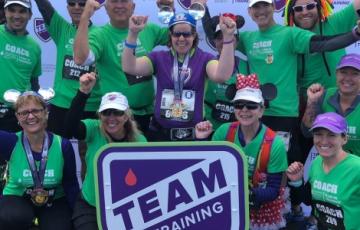
Georgia
Today I would like to give thanks to The Leukemia & Lymphoma Society. With the fantastic staff, and volunteers we have truly come so far. As an ALL survivor, Team In Training Alumni, and participant it is so amazing to see what we have all done for blood cancer patients and their families.
Other Financial Assistance
LLS is part of the Cancer Financial Assistance Coalition (C-FAC), which helps cancer patients manage their financial challenges by:
- Helping members communicate and collaborate
- Educating patients and providers about resources and links to other organizations that provide information about C-FAC's resources
- Advocating for cancer patients regarding the financial burdens of cancer care

Michael
My journey started in 2002 with a lump in my right arm pit. After a year of testing, I was diagnosed with Hodgkin Lymphoma. I was 30 at the time. After 18 months of treatment, including radiation and 15 rounds of chemo, I was cleared in 2005 after two pet scans. In September of 2012, things changed. I was working part-time for a medical transport company and took a patient to my doctors’ office. The nurse asked me why I didn’t come back; so, I made an appointment for February 2013. The blood work looked great so they scheduled a cat scan and it showed enlarged nodes.

Brian
Our family has once again joined the fight to beat leukemia and lymphoma together with the support of The Leukemia & Lymphoma Society (LLS). I am a cancer survivor who comes from a family that, for three generations, has had eight family members with solid tumors or blood cancers. We understand cancer; we will never give up the fight.
Elijah
Diagnosed with ALL in 5th grade, my hopes for a normal and healthy childhood were quickly shattered. The impact on my family began as devastation but has since metamorphosed into restoration, healing, and a closeness beyond this world (bonus, my brother and I have never fought since the day I received the news of my disease).
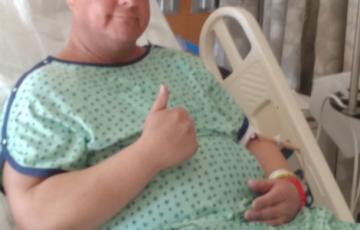
Joe
On August 2, 2018 I took my husband Joe for outpatient surgery to repair a torn cartilage on his left knee, he was prepped up and ready to go, when his orthopedic surgeon came in and told him his surgery was cancelled, he showed us his blood work and talked about possible cancer. We were advised to go directly to his primary care doctor, as we drove to the doctor’s office our heads were spinning as we tried to comprehend what we were just told.

Patty
On January 19, 2012, I lost the love of my life to acute myeloid leukemia (AML). We were together for 21 years and this was not how our love story was supposed to end. Too young, too soon… still so much to do, to see, to experience – How do you go on? How do you continue life without the other half of you? How do you stop crying in the shower, before the water runs cold? How do you get dressed, put on a smile and face the world – alone? How do you believe again, when everything you believed in is gone?
Dorothy
In the fall of 2002, I had a missed call and a “call me when you’re out of class” text from my Dad. I was a sophomore at the University of Georgia when I heard, “Honey, I have cancer. Waldenstrom’s macroglobulinemia (WM).” So, I took a deep breath and asked, “Okay, so what’s next? Surgery? Radiation? Chemo?” “Nothing, we wait until it gets bad enough for treatment.”

Jaden
When I was nominated to be a Student Visionary of the Year, I had no idea how it would impact my life. I was allowed to join a groundbreaking philanthropic leadership development program for high school students. Throughout my courageous seven-week journey, I had a goal of creating a world without blood cancers. It was bigger than winning; it was about making a real impact on the world around me. I learned business marketing skills, used effective communication tools, and met with fellow change-makers in my local area. By the end of the campaign, I felt like a new person.
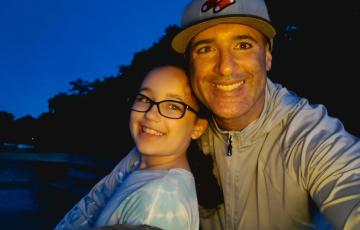
Israel
I am 39 years old, a father of two boys and one girl ― Abdias, 12 years old; Ester, 10 years old; and Ben, 9 years old ― and a husband to my wife Erin for almost 14 years.
On August 14, 2021, I suffered a serious knee injury playing basketball which inadvertently led to revealing I had a blood cancer called chronic myeloid leukemia (CML). Suddenly, instead of prepping for knee surgery, I was sent to the hospital and received an official diagnosis on September 9 after a bone marrow biopsy and what felt like a million tests.
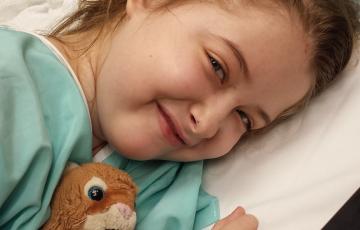
Anna
In 2016 I received one of the scariest calls. My 9-year-old niece had just been diagnosed with leukemia. I live on the opposite side of the country. I was by her side in under 12 hours where I spent the next month trading shifts with her mom as we watched her struggle through treatment. During her hospital stay, we learned of several children from our small community battling the same cancer. I began advocating for these kids and the situation grew bigger than we could have ever could have imagined. That story is for another time. I eventually had to come back home to Seattle.

Mike
I was diagnosed with chronic lymphocytic leukemia (CLL) in December 2004 at stage 0 which was revealed through a routine yearly physical.
Marty
The last time I gave blood was in June of 2016. I was set to start my fourth gallon when I was told by the volunteer my iron was too low. “Come back next time and eat some raisins before you come,” I was told. The next time was an iron failure again. I made an appointment with my PCP for my annual physical and he drew blood for a CBC. Much to my surprise, he called me the next evening at dinner time and said my white cells had some problems and I should see a hematologist/oncologist. He explained his brother had CLL, a possible diagnosis, and lives a normal life.
Kiana
In July 2013, during what was supposed to be a normal sports physical, I turned my head to the side to talk to my doctor, and my mom noticed something, "Is that a lump on her throat?" she asked. An ultrasound and biopsy afterward revealed that I had papillary thyroid carcinoma, a type of thyroid cancer that required major surgery to remove my thyroid and a few affected lymph nodes from my neck, along with radiation treatment. Though they caught it early and I didn't need chemotherapy to treat my cancer, the treatment was still very difficult for me to deal with.
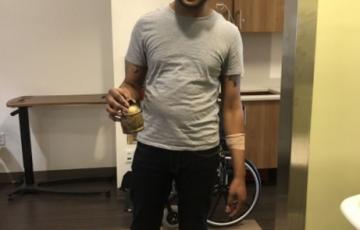
Kendric
In June 2020, I was diagnosed with stage IV Hodgkins lymphoma, but let's backtrack for a minute. In September 2019, I notice that I would (sometimes) experience lower back pain around the lumbar area, but it would only be sometimes. At that point, it may only have happened one to four times a month.
William
The Leukemia and Lymphoma Society (LLS) holds a special place in my heart. I lost my mother to therapy associated with acute myeloid leukemia (AML) in July 2021. AML is a type of blood cancer that affects the bone marrow and blood. It can be very aggressive and progress rapidly without treatment. There are still certain forms of AML that do not have effective treatments, like the one my mother had. LLS was a resource I knew about from my work in solid tumor cancer research. It helped provide me with patient and caregiver resources that I needed at an extremely difficult time in my life.

Shar
For the past nine years as a physician assistant, I have had the privilege of taking care of acute leukemia, high-risk lymphoma and bone marrow transplant patients at the Intermountain Blood and Marrow Transplant Program. Throughout my years at this job, I have seen the struggles patients and their families face once they’ve been told “you have cancer.” I've enjoyed being an important part of our patients’ medical team, helping them heal physically and emotionally, but I wanted to do more.

Mike
My personal story with blood cancer started in 2020 but nobody really knew how long it was brewing. A day came when back spasms started raging and my Primary Care Physician (PCP) sent me to physical therapy (PT). It didn’t take more than 1 visit to PT to know that was a bust and finally my PCP sent me to the Hematologist. This is where my blood cancer story becomes reality, in no more than 5 minutes, the Hematologist sent me directly to the Huntsman Cancer Institute.